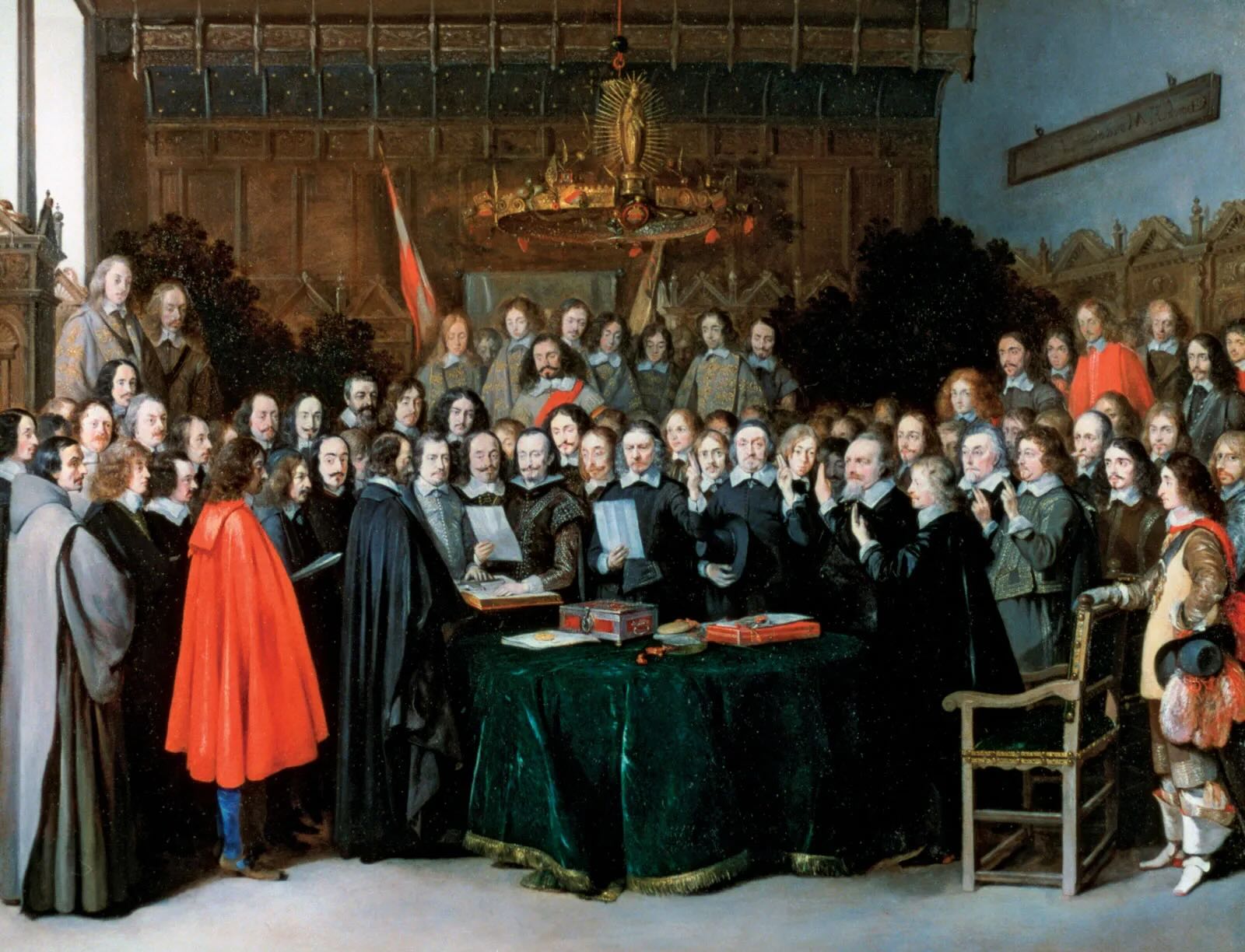
What was the Peace of Westphalia? The Peace of Westphalia was a series of treaties signed in 1648 that ended the Thirty Years' War in the Holy Roman Empire and the Eighty Years' War between Spain and the Dutch Republic. These treaties marked a turning point in European history, establishing the concept of state sovereignty and laying the groundwork for modern international law. The agreements were signed in the Westphalian cities of Münster and Osnabrück, involving major European powers like France, Sweden, Spain, and the Holy Roman Empire. This monumental event reshaped political boundaries, religious freedoms, and diplomatic relations across Europe.
The Peace of Westphalia: A Turning Point in History
The Peace of Westphalia, signed in 1648, marked the end of the Thirty Years' War in Europe. This series of treaties had a profound impact on the political landscape of the continent. Let's dive into some fascinating facts about this monumental event.
-
The Peace of Westphalia consisted of two main treaties: the Treaty of Münster and the Treaty of Osnabrück.
-
These treaties were signed in the cities of Münster and Osnabrück, located in present-day Germany.
-
The negotiations for the Peace of Westphalia began in 1644 and lasted for four years.
-
Over 100 delegations from various European states participated in the negotiations.
-
The Peace of Westphalia is often credited with establishing the concept of state sovereignty.
-
It marked the end of large-scale religious wars in Europe, particularly between Catholics and Protestants.
-
The treaties recognized the independence of the Dutch Republic from Spain.
-
Switzerland was also recognized as an independent nation, free from the Holy Roman Empire.
-
The Peace of Westphalia allowed rulers to choose the religion of their own state, a principle known as "cuius regio, eius religio."
-
It laid the groundwork for modern international law and diplomacy.
Impact on European Politics and Society
The Peace of Westphalia had far-reaching consequences for European politics and society. It reshaped borders, influenced governance, and altered the balance of power.
-
The Holy Roman Empire's influence significantly diminished after the treaties.
-
France emerged as a dominant power in Europe, gaining territories in Alsace and Lorraine.
-
Sweden gained control over territories in Northern Germany, enhancing its influence in the region.
-
The treaties established a new political order based on the balance of power among European states.
-
The Peace of Westphalia promoted the idea of non-interference in the internal affairs of other states.
-
It encouraged the development of a system of alliances and treaties to maintain peace and stability.
-
The treaties contributed to the decline of feudalism and the rise of centralized nation-states.
-
The Peace of Westphalia influenced the development of the modern state system, where states are recognized as equal and sovereign entities.
Cultural and Religious Implications
Beyond politics, the Peace of Westphalia had significant cultural and religious implications. It changed the way people thought about religion, governance, and their place in the world.
-
The treaties allowed for greater religious tolerance and coexistence in Europe.
-
They marked the beginning of the secularization of European politics, separating church and state affairs.
-
The Peace of Westphalia encouraged the growth of a more pluralistic society, where multiple religions could coexist.
-
It influenced the Enlightenment, a period of intellectual and cultural growth that emphasized reason, science, and individual rights.
-
The treaties set a precedent for future peace negotiations and conflict resolution.
-
The Peace of Westphalia is often studied in international relations as a foundational moment in the development of the modern international system.
-
The principles established by the Peace of Westphalia continue to influence global politics and diplomacy to this day.
The Lasting Impact of the Peace of Westphalia
The Peace of Westphalia changed Europe forever. It ended the Thirty Years' War, bringing much-needed stability. This treaty established the idea of national sovereignty, meaning countries could govern themselves without outside interference. It also set the stage for modern diplomacy, with states negotiating as equals. Religious freedom got a boost too, allowing different faiths to coexist more peacefully. The Peace of Westphalia laid the groundwork for the modern international system, influencing how countries interact even today. Understanding this treaty helps us see how historical events shape our present world. So next time you hear about international relations or national sovereignty, remember the Peace of Westphalia played a big role in getting us here.
Was this page helpful?
Our commitment to delivering trustworthy and engaging content is at the heart of what we do. Each fact on our site is contributed by real users like you, bringing a wealth of diverse insights and information. To ensure the highest standards of accuracy and reliability, our dedicated editors meticulously review each submission. This process guarantees that the facts we share are not only fascinating but also credible. Trust in our commitment to quality and authenticity as you explore and learn with us.
